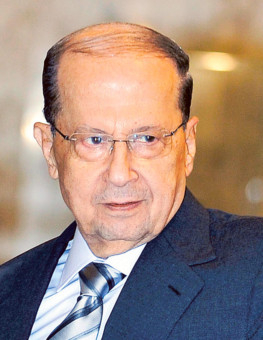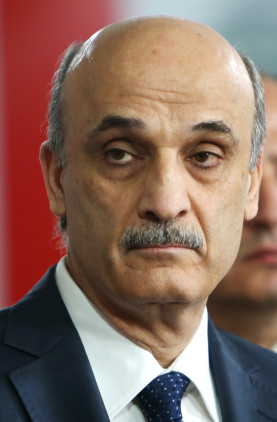
Seoul: Cardinal Beshara Boutros Al Ra‘i, the politically super-active Maronite Patriarch, denied published reports that he had ruled out both March 8 and March 14 candidates for the post of president in Lebanon and that he believed a consensual figure might fill the void. “What we said was that if consensus is not reached on a March 8 or March 14 candidate, another person will be considered [for the presidency],” the cleric intoned in one of his myriad clarifications on what he told reporters. He added: “I have no authority to eliminate anyone. Any [person] that might be elected from the March 8 or 14 coalitions, or outside the two political groups will be our president.”
Such nuanced declarations added to the confusion that was partly fuelled by clerics, both Christian and Muslim. For example, Hezbollah deputy chairman, Shaikh Nabil Qaouk, opined that the “Lebanese had an extraordinary opportunity to elect a president with a 100 per cent Lebanese will,” hoping that the next head-of-state would place the national interest above all else.” Naturally, the Shiite clergyman identified that interest as one that encompassed a confrontation of Israel and, in the party’s post-Syria engagements, all “takfiri” aggressions” even if a majority of citizens disagreed on the second part of his characterisation.
For his part, Bishop Elias Awdeh, the Greek Orthodox Metropolitan of Beirut, wanted “a president who loves Lebanon” since, presumably, some did not. Awdeh expressed hope that the next leader of the country would be “a man of peace who has no malice or hatred in his heart,” which spoke volumes given that malice and hatred of the other was second nature for many.
Whether such clerical remarks eliminated Lebanese Forces leader Samir Geagea and Change and Reform bloc leader General Michel Aoun were difficult to determine although former Prime Minister Najib Miqati chimed in with his own assessment, namely that while Lebanon needed a president who was backed by all parties, this was simply not possible to achieve at this time. “The information I am seeing today is not in keeping with the election of a unifying president,” Miqati told German broadcaster Deutsche Welle last week. It was difficult to see how a hopelessly divided country could settle on a congruent candidate, someone who united rather than divided the nations that make up tiny Lebanon, even if several pretended to be impartial.
If regional actors influenced past selections, the current mayhem in Syria and elsewhere throughout the area added heavy burdens on local actors who, truth be told, were engaged in a fiercely contested presidential battle. Michel Aoun and Samir Geagea were both in the fight of their lives, with Aoun hesitating until the last moment and Geagea prodding his allies to jump on his bandwagon.
Aoun wished that Hezbollah would declare its support while Geagea told the Saudi daily Al Watan that March 14 was very close to endorsing his candidacy, adding: “if I was not certain of these forces’ endorsement I would not have run for the election.” For his part, Aoun stressed that he was the most viable leader, calling on the sitting president to appoint his son-in-law, Special Forces Commander General Charmel Roukoz as a successor to Army Commander Jean Kahwaji. Aoun, who was not known for his past strategic performances, may have overstepped and committed a tactical blunder by making this request, as it illustrated how he intended to use his putative post to push early nominations that were nepotistic in nature as well as substance. Equally important, the anti-Kahwaji effort was perceived as an attempt to sideline a rival, which further enlarged the gulf that existed among protagonists.














